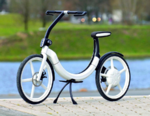As population density continues to increase, more and more cities are looking for alternatives to automobiles. Ebikes are relatively new and laws are just starting to come in line with the ebike population. Washington state just passed Senate Bill 6434 which became effective 6/7/2018 and similar bills are in the works for other states with expectations of becoming law within the next 12 months. Laws are ambiguous and viewed by interpretation. I think that no matter where you are or how you interpret the rules for your area, inevitably someone else, like a police officer, may see it differently. Trying to split hairs over laws is a waste of energy. It is your responsibility to ensure that whatever bike you buy, make or modify, meets the rules and guidelines of your local jurisdiction. I believe that most riders are responsible and do their best to follow the rules. Bike malfunctions happen but In the end, its up to you to make sure that your bike is safe, in working order and complies. If you do not, than you have to deal with the consequences.
That's really the main issue I have with the current regulations - they are limiting the potential adoption rate of eBikes as viable transportation. Limiting the assist speed to 20mph or even 28mph has the net result of increasing commute times and when riding on roads increases the risk of the rider because the differential of speed with cars is higher than it needs to be. I'm not advocating crazy fast assist speeds but if the rider can cadence at 35mph why not allow some assist at that speed to it can be maintained even on a reasonable grade.
Allow the technology to reach it's potential. That is what regulators should be focused on. Not thinking that 20mph is "fast enough" and we need to keep riders safe (riders are best suited for keeping themselves safe).


